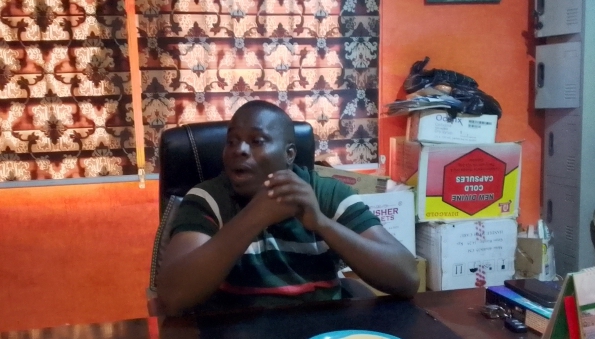The C-Circle Foundation for Sustainable Health and Environment has launched a nationwide campaign to end the consumption of ’Nzu’ (edible clay), a hidden source of lead poisoning in Nigeria.
The campaign coincides with the 2025 International Lead Poisoning Prevention Week.
It was themed “No Safe Level: Act Now to End Lead Exposure”, and supported by the Lead Exposure Elimination Project (LEEP).
Dr Chimere-May Ohajinwa, an environmental toxicologist and head of the C-Circle Foundation, said nzu poses both chemical and hygienic risks.
Ohajinwa said Nzu is sold uncovered and handled without proper hygiene.
According to her, lead poisoning remains one of Nigeria’s most overlooked public health challenges.
“While attention has focused on lead in paints and fuel, edible clay remains a silent but dangerous source of exposure in homes and markets.
“Most nzu sold in markets is displayed openly and eaten without washing.
“Beyond lead, it can expose consumers to bacteria, dust and parasites,” she said.
Ohajinwa said the Foundation’s recent radio campaign revealed widespread ignorance about the dangers of eating nzu.
She added that one caller confessed she could not go a day without eating it and was unaware of the health risks.
According to her, vendors across markets in southern Nigeria, sell lumps of nzu for as little as N50 to N100.
“Many believe it aids digestion, but researchers describe it as a toxic substance harmful to mothers and unborn babies.
Ohajinwa said many listeners were surprised to learn that eating nzu could cause poisoning.
She described geophagy as the craving and consumption of clay and as an addictive condition requiring behaviour change.
“Our campaign aims to replace myths with science and encourage safer alternatives for managing nausea during pregnancy.
“This is about protecting mothers and future generations.
“The Foundation also visited antenatal clinics to educate pregnant women on lead poisoning,”she said.
Ohajinwa stressed that lead poisoning is entirely preventable through community education, regulation and proper enforcement of existing environmental laws.
“Lead poisoning is a silent killer, but it can be stopped, with awareness and enforcement.
“We can protect mothers and children from toxic exposure,” she said.
The Foundation urged Nigerians to stop eating nzu.
It advised buying only certified lead-free paints and avoid unregulated cosmetics or herbal remedies that may contain heavy metals.
It also called on government agencies to strengthen public health campaigns and ensure that products with harmful substances are removed from markets.
Ohajinwa reaffirmed the Foundation’s commitment to building a healthier Nigeria where prosperity is shared, and preventable toxic exposures are eliminated through education and collaboration.
About Lead
Recall that eating nzu is a common cultural practice, especially among pregnant women in southern Nigeria, believed to relieve nausea and cravings.
However, studies show the clay contains unsafe levels of lead, arsenic and cadmium.
Experts warn that lead crosses the placenta, causing brain damage, miscarriages, low birth weight and long-term developmental problems in children.
Yet, nzu continues to be sold openly without regulation or warning labels.
Lead is a heavy metal used in batteries, paints and industrial materials.
While useful in manufacturing, health experts agree that there is no safe level of lead exposure for humans.





